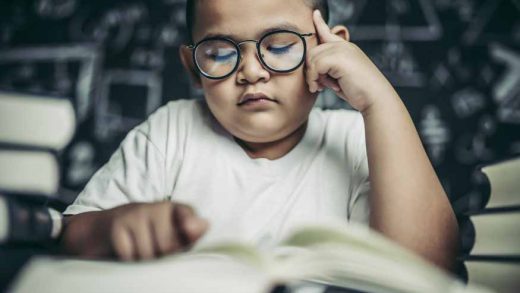The attention span of children is usually low. Their minds keep transporting from one thing to another. Their curiosity makes it difficult for them to concentrate on anything. Whether it’s their regular activities or the pre-primary syllabus. It is not just your kid who lacks concentration. Concentration problems in students happen with all. So, don’t worry about it. But it is crucial to know the reason behind the lack of attention. It will ensure that you take the appropriate measures to solve the issue.
What is concentration?
Concentration is the ability to focus on, maintain and attend to a particular task. Children should be able to maintain a level of concentration that is appropriate for their age. One way to tell if your child is concentrating well is to compare them with their peers. The aspects of concentration are as follows:
- Listening
- Following verbal and non-verbal cues,
- Ignoring any noises or visual distractions
- Staying quiet
- Sustaining attention over time
- Focusing on the relevant information
What are the Symptoms of Concentration Problems in Children?
Are you worried your child may have a concentration problem? Read on to learn seven common concentration problems symptoms in children that you should be on the lookout for.
- Unable To Maintain a Train of Thought
- Needing Directions Repeated
- Unable To Focus on One Task at A Time
- Taking A Lot of Time to Finish a Task
- Fidgetiness
- Unable to Get and Keep Tasks & Belongings Organized
- Doesn’t Seem to Be Listening When Spoken To
When your child is telling a story, it is often convoluted, and he or she jumps to unrelated stories without knowing it. If something interrupts the story, your child has a difficult time remembering where the story left off.
Your child gets distracted when doing a task and needs you to repeat the directions to remember what’s needed of him or her.
When your child studies, he or she does a small amount of work in multiple subjects but can’t focus on one task to completion. Your child may present this tendency as multitasking.
Your child takes two or three times the amount of time it should take to complete an activity because he or she gets sidetracked.
Your child always has something to fiddle with when sitting down to do homework or in class. Even objects such as eating utensils, glasses, or pencils are fiddled with when they’re not in use.
Your child feels flustered when having to organize his or her time and belongings. He or she often feels overwhelmed or flustered when getting ready in the morning. He or she constantly loses items and forgets what he or she is doing or working on.
When you’re speaking directly to your child, he or she doesn’t seem to react to what you’re saying. Instead, he or she may look at other things in the room while you’re talking. You feel like your child quickly loses interest in what you (or others) are saying to him or her.
What are the Causes of Concentration Problems in Children?
Understand the root of concentration problems causes in children. It is the first step towards implementing effective solutions. Here are some of the things that may be responsible for concentration difficulty in a child:
- Common Distractions
- Difficult Tasks
- Lack of Attention
- Lack of Proper Diet and Sleep
- Personal Problems
Children easily get distracted for several reasons. It might be the yearning to watch television or play video games. The cause of distraction might even be a toy lying in a corner. Therefore, it is necessary for you to remove all distractions before you make your child sit down to study.
The level of difficulty of the task might be the reason why your child lacks concentration. It is essential for you to find out if your little one is having trouble understanding something. The pre-primary syllabus in India is designed in such a way that your child faces no difficulty. But if your child is still having trouble, identify the areas which they find difficult.
A significant reason why your child might lack concentration is that they are craving your attention. Sometimes they don’t concentrate on their studies just to get your attention. You should make it a priority to spend time with your children. Communicate with them and understand their needs. You should give your child all the attention they need. Your child must be comfortable in sharing their problems with you.
It is crucial for your child to eat a balanced diet. Your child should be given food rich in nutrients. Junk food is not healthy for your kids. They decrease the attention span of children, along with causing other health problems. Your child should never sit down to study on a hungry stomach because it is bound to create distractions.
A child should get an average of 8 to 12 hours of sleep every day. This will keep the minds of the children calm and relaxed. Therefore, it is vital for your children to get proper rest and eat healthy food.
Troubled children naturally affect their ability to concentrate. If there is trouble at home, your child will most likely be disturbed. He finds focusing on his regular activities challenging. If there has been a loss in the family, such as the death of a loved one, it can negatively impact your child’s concentration.
Your children should be able to concentrate on the task that they are performing. Concentration improves the quality of the task and offers better results. Make sure to find the reason why your child is having concentration problems. Then, take adequate measures to solve the issue. You may get help from a school such as the Kangaroo Kids International Preschool.









